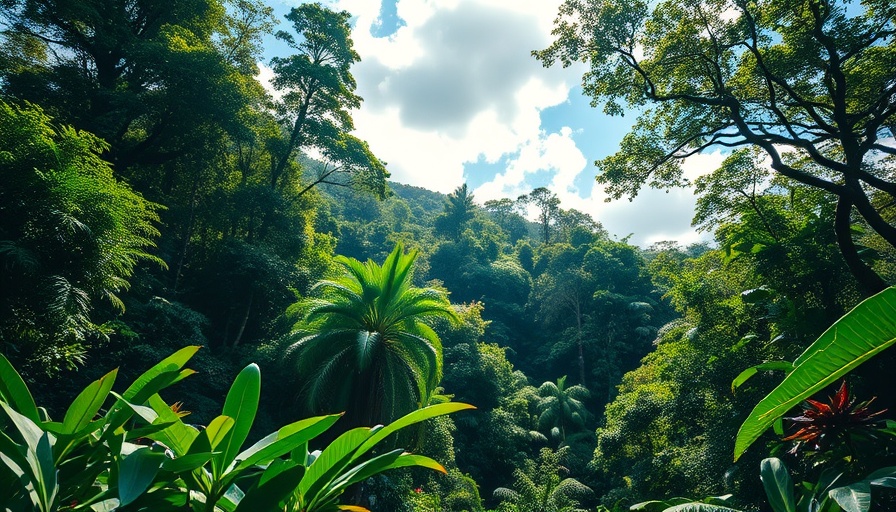
Rethinking Nature's Rights in Ecuador
The discussion of what rights, if any, Mother Earth should possess has gained traction globally, especially since Ecuador enshrined the Rights of Nature in its constitution in 2008. This legal framework allows nature to be viewed as a rights-bearing entity rather than an object of human exploitation. What's significant here is how this revolutionary legal perspective has evolved, particularly in the wake of the Llurimagua case, where mining activities in Ecuador's cloud forests were halted due to the intervention of local communities advocating for nature's rights.
Empowering Communities and Ecosystems
This innovative framework has sparked numerous legal battles in Ecuador, especially reflecting how community activism and environmental protection can intersect. For instance, the story of the Resistance Rocket Frog illustrates the profound impact of local collaboration. The Junin community took a stand against large mining firms, declaring their rights and the rights of their ecosystem, standing as co-equal plaintiffs in court. The Resistance Rocket Frog became the emblem of their fight, highlighting both the vulnerability and the critical role of amphibians as ecological indicators.
Strategies Employed to Uphold Nature’s Rights
Communal and legal strategies have combined to block several mining operations. The networks formed between environmentalists, legal experts, and local residents create a powerful alliance that challenges massive industries. As regional biodiversity is threatened, such as the 16,500-20,000 vascular plants and 690 amphibian species in Ecuador, this holistic view of ecology balances the scales between development and environmental integrity.
Global Implications for Earth System Governance
This emergence of the Rights of Nature calls for a reassessment of our governance systems worldwide. The Ecuadorian experience has resonated globally, inspiring similar legal frameworks in countries like New Zealand and India. The notion of nature having legal rights compels us to reconsider our relationship with the environment — not merely as resources to exploit but as entities deserving of respect and protection.
Future Insights: A New Era of Conservation?
If the Rights of Nature continues to effectively block harmful projects and protect ecosystems, it may be a precursor to a fundamental change in environmental law. By empowering communities to act on behalf of their ecosystems, we usher in an era where ecological health directly correlates to human prosperity. Such legal shifts might inspire further global movements advocating for similar rights, thereby amplifying a ripple effect across international socio-political landscapes.
This call for solidarity reveals the human capacity to unite behind fundamental rights, enduring values, and justice for all organisms on our planet. It paves the way for constructive dialogue and legislative shifts aimed at protecting the planet's ecosystems against the ravages of unchecked development.
Call to Action: Join the Movement
As we reflect on the profound implications of the Rights of Nature, it's vital to become advocates for environmental justice. Join local organizations or participate in community endeavors aimed at protecting our ecological heritage. With every action taken to protect our planet, we support the movement toward a sustainable future, ensuring that nature is heard and respected in our legal systems.
 Add Element
Add Element  Add Row
Add Row 



 Add Row
Add Row  Add
Add 


Write A Comment